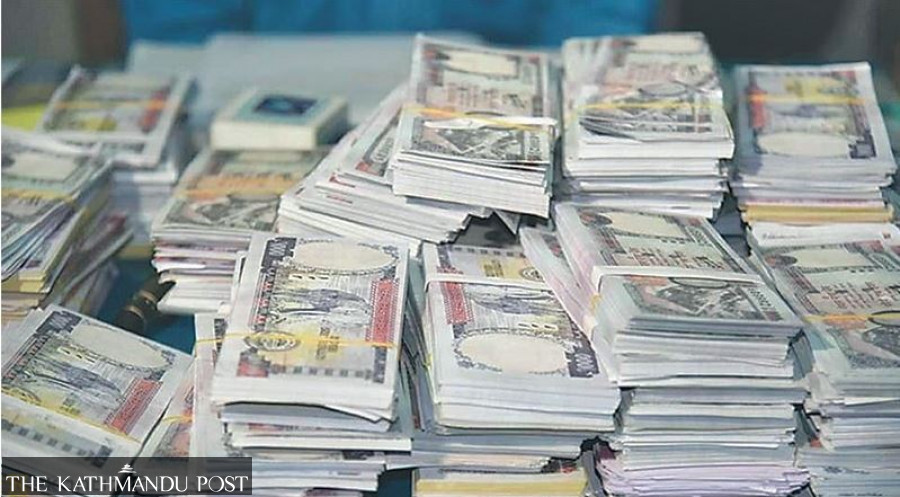Editorial
Thief’s route
The non-disclosure provision is just a garb to provide sanctuary to a narrow, exclusive circle.
On September 10, Finance Minister Janardan Sharma presented a bill in the House of Representatives to replace the budget introduced by the erstwhile KP Sharma Oli government. Within the bill lies a provision that ratifies non-disclosure of sources of income if the money is to be invested in business areas that primarily encompass the entire spectrum of businesses in Nepal that may require capital injection in one form or another. This controversial stipulation has raised eyebrows within the country and beyond. It has once again shed light on the regressive steps to nullify the gains made in containing issues related to money laundering.
This move comes at a time when the Asia Pacific Group on Money Laundering (APG), a regional, inter-governmental, anti-money laundering body of which Nepal is also a member, is conducting a mutual evaluation of money laundering legislation in the country. The ramifications can be disastrous for Nepal; it risks being blacklisted by the APG and the Financial Action Task Force, resulting in the country being branded a pariah and seriously affecting international financial transactions. It is another matter that officials in the government are packaging the move as well-intentioned, which would bring the necessary capital infusion to business sectors in dire need of funds.
This is not the first time that such a provision has been tabled. In 2018, Yuba Raj Khatiwada had presented a similar proposal which was ultimately scrapped after widespread criticism. The argument that non-disclosure of revenue sources allows local black money to be channelled back to the mainstream economy is feeble due to the lack of any viable businesses which would make cash-based revenue to match the scale of investment required. And those that can are few and far between who wouldn’t risk being in the spotlight. This leaves scope for foreign investment.
No foreign investor in their right mind would see this as an opportune moment to invest in a country on the verge of being blacklisted by a money-laundering body—save the ones that have ill-gotten gains manufactured in Nepal stashed away in some safe haven abroad. This clearly projects that the provision of non-disclosure is just a garb to provide sanctuary to a narrow, exclusive circle allowing them to channel funds to the country in one form or another.
As it stands, Nepal has slipped four places to rank 117th in the Corruption Perception Index among 180 countries. It reflects on the state’s action to tackle the menace ravaging the country from within. Despite well-intentioned rhetoric to validate it, a provision that would, in one way or another, encourage money laundering and facilitate the exchange of money with no legitimate source would certainly risk promoting corruption. For a country that needs to attract international capital, we need to strengthen our anti-money laundering measures to boost investor confidence. A feeble statement stating that the government will not grant impunity to anyone involved in money laundering, terrorist financing or corruption as per the existing laws will not suffice to clear the air of doubt when the actions of the state reflect quite the opposite.




 13.12°C Kathmandu
13.12°C Kathmandu














